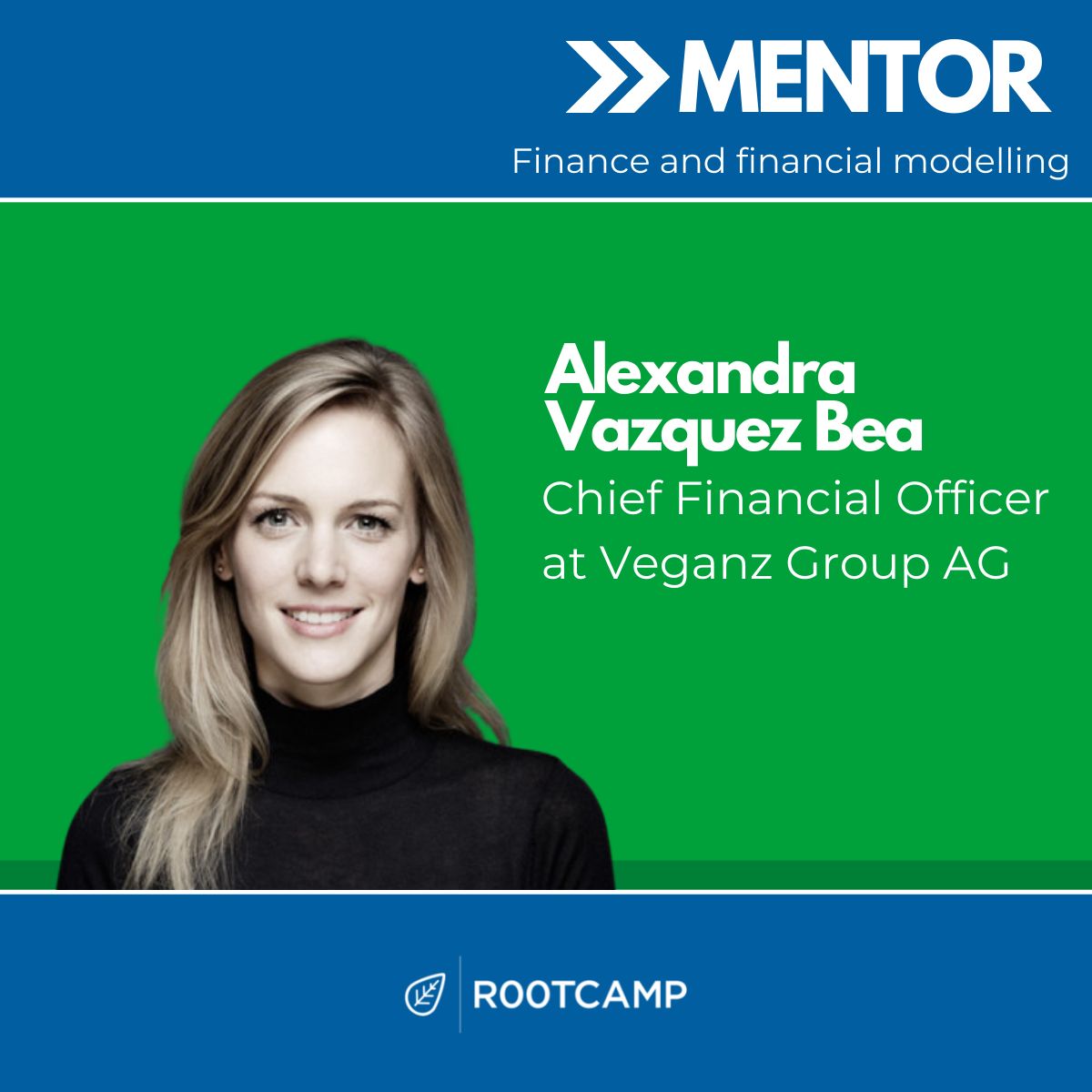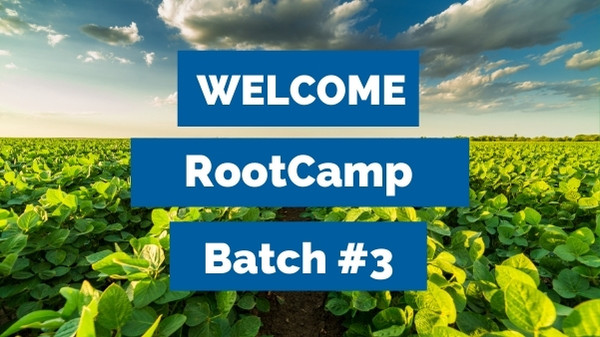RootCamp’s Batch #3 starts next week! More than 250 startups from 58 different countries have applied for our acceleration program. Most of them are from Germany, followed by Nigeria, the Netherlands and India (see image below). Today we show you the best 10 % of the startups that applied.
/Absolute%20vs.%20Geographic.png?width=572&name=Absolute%20vs.%20Geographic.png)
Distribution of Countries
Application Process
Startups operating across the food value chain could apply until the 15th of February. Subsequently, the startups were evaluated by our experts within the next weeks. Relevant criteria were the idea, market, team, the understanding of the presentation, the overall impression and the potential to cooperate with RootCamp’s partners. The best 10 % were invited to video calls for a personal interview. Here, open questions were clarified and the teams were able to ask specific questions regarding the acceleration program. Next to the startup and the RootCamp team, the relevant corporates participated in the video calls - to get an understanding of which of the startups are potential partners for future cooperation and projects. Namely, our participating corporations were K+S, KWS, SKW and hannoverimpuls (see our partners).
The video calls are also important to get a deeper understanding of the current stage of the startups. Early-stage startups participate in our regular acceleration program lasting 12 weeks. Later-stage startups have the possibility to directly jump on a pilot project with our partners.
The best 10 % of Batch#3: An overview of the Startups
Startups tackling greenhouse gas emissions
Most startups nowadays have at least the indirect potential to reduce the environmental impact in their field of activity. But several have the main objective, to measure and reduce the environmental impact of existing processes.
Seqana, Agricircle and Climate Farmers want to measure the carbon sequestration on cropland through satellite data, connected partly with on-ground soil analysis. The main objective is to deliver CO2-Certificates to farmers to generate additional income possibilities and reward farmers for a higher expenditure to protect the environment.
One step before, Avoin Map and Grain Data Solutions track input parameters that influence the carbon sequestration potential of crop production. While Avoin Map connects different data sources and provides next to agricultural data also insights into air quality or, for example, the snow cover loss, Grain Data Solutions detects whether a farmer has used no-tillage production method, crop rotation and cover crops on a specific field.
Focusing on carbon accounting, ClearCO2 wants to provide small and medium enterprises, for example restaurants, with a low-effort solution to assess greenhouse gas emissions on a product basis.
Sensors: Opening the black boxes
What you can measure you can improve. This is a simple and basic rule to enhance production in all industries. Sensors allow farmers to measure and understand their production processes. Several startups connect hard- and software to open specific black boxes.
VetVise and Cynomys are both active in the livestock sector and want to enhance animal welfare. While VetVise measures image-based the behaviour of the animals in poultry and pig production, Cynomys uses air-quality sensors to determine the welfare of the animals. Similarly to VetVise, Futuro Farming uses image data but focuses currently on a calf monitoring system.
Farm21 develops a product with a bundle of sensors, such as air and soil temperature as well as air and soil humidity for hyper-local insights into crop production.
Silolytics and Koiotech develop solutions for later stages in the crop production value chain. The former wants to deliver insights into the silage production process and enables the procedure of ensiling two or more crops together. Koiotech develops a product to automate the quality control of potatoes after the harvest.
Biostimulants: Promote the development of plants
Biostimulants are a promising approach since the application of fertiliser and pesticides is going to be more and more restrictively regulated. In that case, microorganisms, algae compounds, plant and animal extracts, as well as humic and fulvic acids - all of those are usually classified as biostimulants - can make a significant contribution to the output of farming systems. With Holganix, Xtrem Biotech, String Bio and Biolevel, several startups develop products to promote the growth of agricultural crops.
Microencapsulation, automated insect farms and packaging: Other promising solutions
Two startups develop promising approaches for microencapsulation, an approach taking precise control over the release of the encapsulated ingredient. Bialtec focuses on animals to create a new generation of antibiotics-free animal growth promoters, while MAKABI uses the microencapsulation technology to develop products that contribute positively to crop production.
Robotics: Precise weeding without pesticides is still a very time-consuming manual work step in crop production. Several startups want to tackle this problem with small, and (in the future) autonomous robots, such as FENNTEC from Hanover.
Nertus works on an automated and decentralised insect farm, to enable farmers with minimal work and knowledge requirements to produce their own feed.
The next-generation biorefinery prebiotics are developed by Biorefic. Using crop residues and energy crops, they want to produce prebiotics for animals and aquaculture.
The packaging industry is facing enormous challenges in switching to more sustainable materials. One solution is developed by envoPAP, a startup from India which uses agricultural waste to produce biodegradable packaging paper.
The next steps
Stay tuned because on the 16th of May, the program starts and we will announce the participating startups!
/rootcamp_logo_white_2022.png?width=2123&height=630&name=rootcamp_logo_white_2022.png)

/RC%20logo%202022.png?width=2325&height=703&name=RC%20logo%202022.png)




